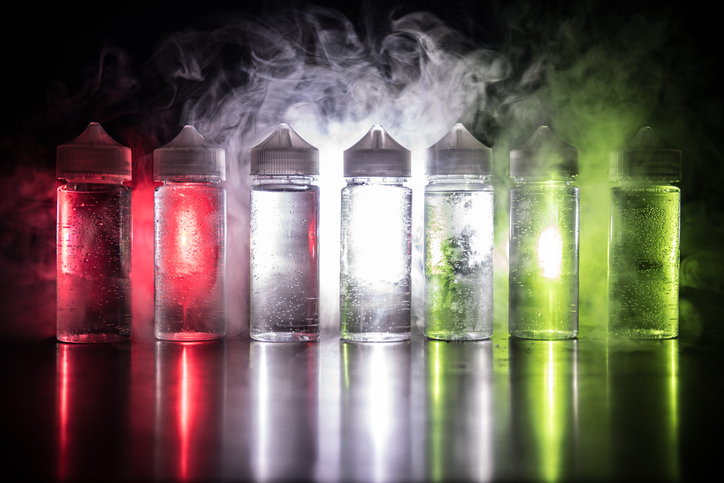E-liquids may increase susceptibility to Covid infection: study
February 27, 2024

Certain chemicals found in e-cigarettes may make vapers more susceptible to Covid-19 infection, according to a study.
The liquid used in electronic cigarettes, called e-liquid, typically contains nicotine, propylene glycol, vegetable glycerin, and flavour chemicals.
The study, published in the American Journal of Physiology, found propylene glycol/vegetable glycerin alone or along with nicotine enhanced Covid-19 infection through different mechanisms.
The researchers from the University of California (UC), Riverside in the US, also found that the addition of benzoic acid to e-liquids prevents the infection caused by propylene glycol, vegetable glycerin, and nicotine.
“Users who vape aerosols produced from propylene glycol/vegetable glycerin alone or e-liquids with a neutral to basic pH are more likely to be infected by the virus, while users who vape aerosols made from e-liquids with benzoic acid – an acidic pH – will have the same viral susceptibility as individuals who do not vape,” said Rattapol Phandthong, a postdoctoral researcher at UC Riverside.
The acidity or basicity of a substance is measured by its pH value.
The researchers obtained airway stem cells from human donors to produce a three dimensional tissue model of human bronchial epithelium. They then exposed the tissues to electronic cigarette aerosols to study their effect on SARS-CoV-2 infection.
They found that all tissues showed an increase in the amount of ACE2, a host cell receptor for the SARS-CoV-2 virus. Further, TMPRSS2, an enzyme essential for the virus to infect cells, was found to show increased activity in tissues exposed to aerosols with nicotine.
Prue Talbot, a professor at UC Riverside, said that e-cigarette users should be cautious about vaping as some products will increase their susceptibility to SARS-CoV-2 infection.
“It would probably be best for vapers to quit vaping for the protection of their health and to stop nicotine dependency,” Talbot said.
“If they cannot stop vaping, it is better to vape aerosols produced from an e-liquid with acidic pH or with benzoic acid to prevent the enhanced SARS-CoV-2 infection caused by nicotine, propylene glycol, and vegetable glycerin. However, inhalation of benzoic acid has its own risk, and data is still limited on this topic,” she said.
The researchers acknowledged that the relationship between e-cigarettes and SARS-CoV-2 susceptibility is complex.
“The complexity is attributed to a wide range of available e-liquids, the chemical composition of each e-liquid, and different models of e-cigarettes,” Phandthong said.
“Even with just two e-cigarettes, we found the aerosols and individual ingredients produced different effects on SARS-CoV-2 infection,” he said.
The researchers hope the US Food and Drug Administration will use their findings to implement regulatory laws on e-cigarette products.
“Our findings could also help improve the design of clinical trials involving the use of tobacco products and SARS-CoV-2 infection,” Phandthong added.
